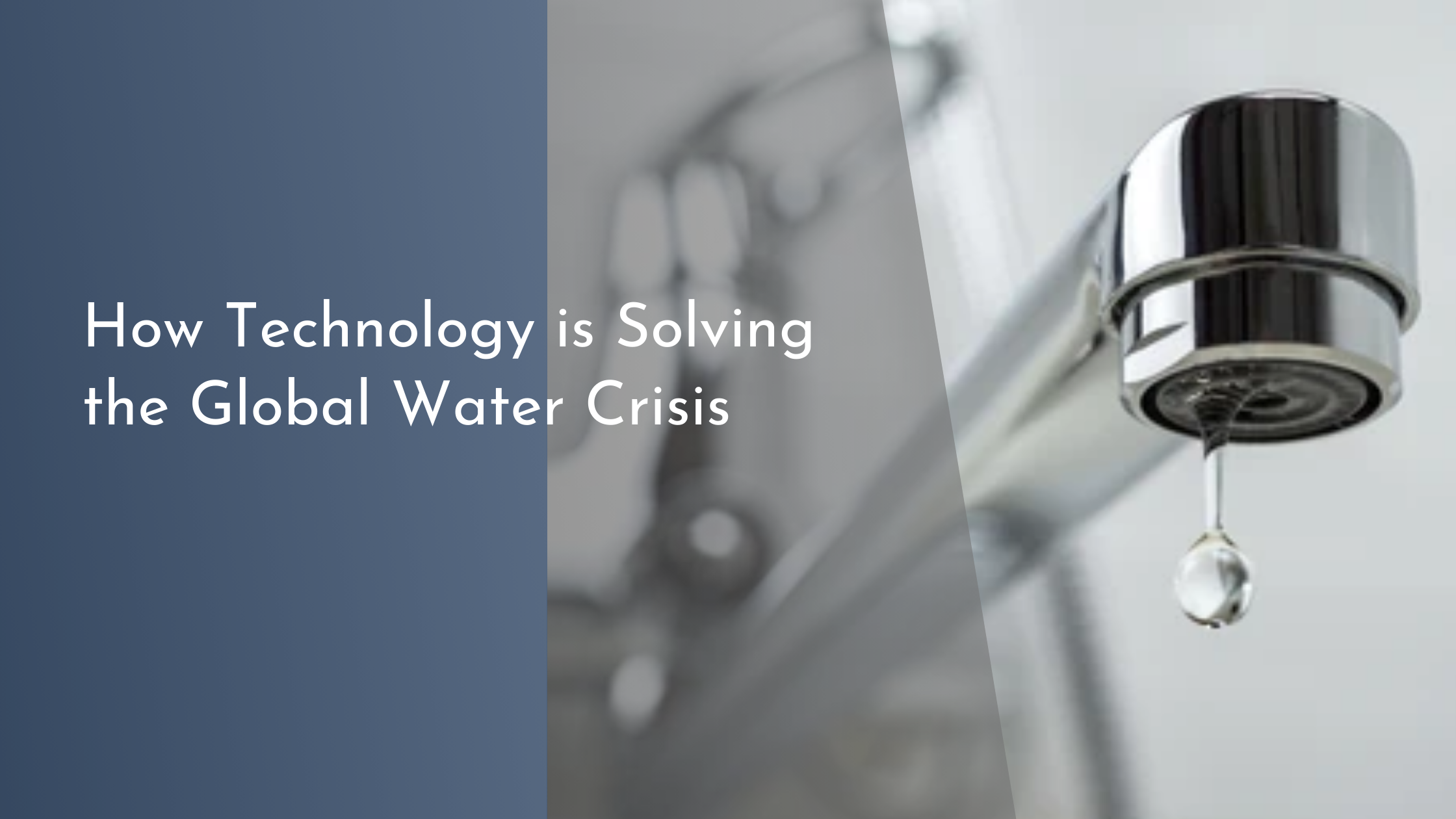How Technology is Solving the Global Water Crisis
The global water crisis is one of the most pressing issues of our time, with millions of people lacking access to safe drinking water and adequate sanitation. However, technology offers a beacon of hope by providing innovative solutions to tackle these challenges. From advanced purification processes to smart systems for agriculture and data-driven water management, technological advancements are paving the way for a more sustainable future. In this article, we will explore several key areas where technology is making a significant impact in solving the global water crisis.
Innovative Water Purification Technologies
One of the most promising areas of technological advancement in addressing the global water crisis is the development of innovative water purification technologies. These solutions are crucial for providing safe drinking water to communities that otherwise rely on contaminated sources. Among these innovations, membrane filtration stands out as a game-changer. By using semi-permeable membranes, this technology efficiently removes pathogens and impurities from the water, making it safe for consumption. Membrane filtration systems are increasingly being adopted due to their scalability and ability to purify large volumes of water at a relatively low cost.
Another remarkable breakthrough is the use of solar-powered desalination. Traditional desalination processes are often energy-intensive and expensive, but by harnessing solar energy, these systems can operate sustainably. Solar desalination plants are now being deployed in arid regions where freshwater resources are scarce. These plants use solar energy to heat seawater, generating steam that is then condensed into freshwater. This not only provides a renewable solution to water scarcity but also reduces the carbon footprint associated with conventional desalination methods.
Smart Irrigation for Sustainable Agriculture
In the realm of agriculture, smart irrigation systems are transforming the way water is used and conserved. With the increasing demand for food production, efficient water management in agriculture is essential. Smart irrigation technology employs sensors and IoT devices to monitor soil moisture levels, weather conditions, and crop requirements in real-time. This data-driven approach allows farmers to optimize water usage, applying the right amount of water at the right time, thereby minimizing waste and enhancing crop yields.
Moreover, these systems are equipped with automated control features that adjust irrigation schedules based on environmental data. This reduces the dependency on manual labor and ensures that crops receive adequate water even during periods of drought or water scarcity. By implementing smart irrigation, farmers can not only conserve water but also reduce operational costs and improve the overall sustainability of their agricultural practices. This innovation is especially important in regions facing water shortages and where agriculture is a critical component of the economy.
Harnessing Data for Efficient Water Management
In the fight against the global water crisis, data has emerged as a powerful ally. Advanced data analytics and artificial intelligence are being leveraged to enhance water management systems across the globe. By analyzing vast amounts of data from various sources, water utilities can detect leaks, monitor water quality, and predict usage patterns with remarkable accuracy. This allows for proactive maintenance and efficient allocation of water resources, significantly reducing wastage and improving service delivery.
Furthermore, the integration of data-driven decision-making tools enables governments and organizations to implement targeted strategies for water conservation. Real-time monitoring and predictive analytics provide insights that help identify areas with high water usage and potential risk of shortages. With this information, stakeholders can devise policies and initiatives tailored to specific needs, fostering sustainable water management practices. By embracing data technology, communities around the world are better equipped to address the challenges of water scarcity and ensure equitable access to this vital resource.
The future of water management looks brighter thanks to the innovative technologies being developed and implemented across the globe. As we continue to harness the power of technology, we move closer to solving the global water crisis. From purification systems and smart irrigation to data-driven water management, these advancements not only provide immediate solutions but also pave the way for long-term sustainability. By embracing these technologies, we can ensure that future generations have access to the clean and plentiful water they need to thrive. Technology is indeed a powerful tool in creating a more sustainable and equitable world.


